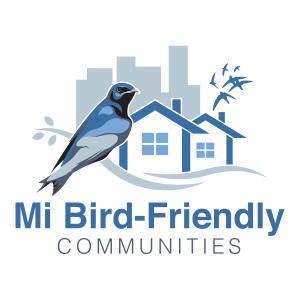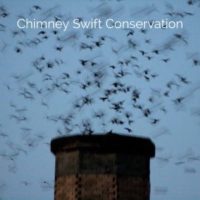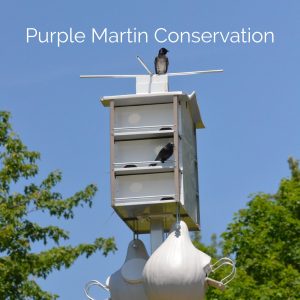 Mi Bird-Friendly Communities
Mi Bird-Friendly Communities
As the populations of many bird species throughout Michigan continue to dwindle, Michigan Audubon is enlisting the help of numerous groups throughout the greater Lansing region to improve the outlook for urban birds. The Mi Bird-Friendly Communities program works to engage the local community in urban bird conservation programs designed to connect these communities with birds and the environment for the benefit of all. Michigan Audubon collaborates with diverse partners including units of local government, businesses, nonprofits, schools, and community groups to make this program a success. If you or your organization would like to get involved and make our community a better place for birds and people, please contact us!
Mi Bird-Friendly Program Areas
 96% of North America’s landbirds need insects to feed their young. Native plants produce four times as much insect biomass compared to non-native plants. If we want to continue to see birds in our yards and natural areas, we must provide the resources they need to reproduce. Habitat loss and fragmentation are the greatest threats to bird populations. Of our beloved Neotropical migrants, 127 species are in decline, with 60 species experiencing a severe decline. Help reverse these trends by providing a “convenience store” in your yard — a place for migrants to refuel on their long journey.
96% of North America’s landbirds need insects to feed their young. Native plants produce four times as much insect biomass compared to non-native plants. If we want to continue to see birds in our yards and natural areas, we must provide the resources they need to reproduce. Habitat loss and fragmentation are the greatest threats to bird populations. Of our beloved Neotropical migrants, 127 species are in decline, with 60 species experiencing a severe decline. Help reverse these trends by providing a “convenience store” in your yard — a place for migrants to refuel on their long journey.
 Each spring, neotropical migratory birds leave their winter feeding grounds and fly north to summer breeding sites. Each fall, when the young outgrow their nest and insect populations dwindle, the birds return to warmer climates where food is more abundant. Many of these species migrate at night. And tragically, many of these birds do not complete their journey due to a simple man-made issue: we left the lights on. There are many ways you can help provide safe passage for migratory birds. Whether you are a building owner, a building tenant, or a homeowner, reducing light pollution especially during spring (March 15-May 31) and fall migration (August 15-October 31) will help our migratory birds.
Each spring, neotropical migratory birds leave their winter feeding grounds and fly north to summer breeding sites. Each fall, when the young outgrow their nest and insect populations dwindle, the birds return to warmer climates where food is more abundant. Many of these species migrate at night. And tragically, many of these birds do not complete their journey due to a simple man-made issue: we left the lights on. There are many ways you can help provide safe passage for migratory birds. Whether you are a building owner, a building tenant, or a homeowner, reducing light pollution especially during spring (March 15-May 31) and fall migration (August 15-October 31) will help our migratory birds.
 Chimney swifts are urban birds that have suffered steep declines over recent decades throughout their range. Reasons for this decline include loss of man-made nesting and roosting structures, insecticide use, and habitat loss on the wintering grounds in South America. Although the species is attracted to urban areas with high human population densities, this species is often overlooked and its distribution and numbers in Michigan are poorly understood. Michigan Audubon’s efforts are focused on outreach, education, on-the-ground conservation, and research to increase awareness for chimney swifts and slow or reverse the population declines they have experienced across the state.
Chimney swifts are urban birds that have suffered steep declines over recent decades throughout their range. Reasons for this decline include loss of man-made nesting and roosting structures, insecticide use, and habitat loss on the wintering grounds in South America. Although the species is attracted to urban areas with high human population densities, this species is often overlooked and its distribution and numbers in Michigan are poorly understood. Michigan Audubon’s efforts are focused on outreach, education, on-the-ground conservation, and research to increase awareness for chimney swifts and slow or reverse the population declines they have experienced across the state.
 Michigan Audubon’s Purple Martin conservation efforts focus on outreach, education, on-the-ground conservation, and research to increase awareness for Purple Martins and slow or reverse the population declines they have experienced across the state. While the global population is stable, Michigan’s Purple Martins have been experiencing consistent, steep population declines since 1966 according to the Breeding Bird Survey. Lack of properly sited and managed nesting structures are a limiting factor for breeding Purple Martins as they rely solely on human-made structures for nesting in this region. Michigan’s Purple Martins need everyone’s help to thrive in our state — please join us!
Michigan Audubon’s Purple Martin conservation efforts focus on outreach, education, on-the-ground conservation, and research to increase awareness for Purple Martins and slow or reverse the population declines they have experienced across the state. While the global population is stable, Michigan’s Purple Martins have been experiencing consistent, steep population declines since 1966 according to the Breeding Bird Survey. Lack of properly sited and managed nesting structures are a limiting factor for breeding Purple Martins as they rely solely on human-made structures for nesting in this region. Michigan’s Purple Martins need everyone’s help to thrive in our state — please join us!

